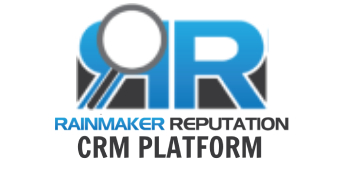Transform Your Finances: A Strategic Guide to Successfully Consolidating Rent Arrears
Many tenants face significant anxiety when they find themselves unable to keep up with their rent payments. This predicament often breeds a challenging combination of emotional strain and financial pressure, making the journey to recovery seem overwhelming. However, grasping how to consolidate rent arrears can provide a clear and actionable roadmap toward regaining financial stability. Consolidation is more than just a financial maneuver; it’s a crucial opportunity to reclaim control over your finances and restore your peace of mind. This comprehensive guide explores the fundamental aspects of consolidating rent arrears, equipping you with essential insights and practical strategies to confidently navigate this difficult terrain.
Understanding the Core Concepts of Rent Arrears Consolidation for Tenants

Understanding the Definition and Significance of Rent Arrears Consolidation
At its essence, rent arrears consolidation entails merging outstanding rent obligations into a single, manageable repayment strategy. This method is especially vital for tenants who find themselves struggling with multiple overdue payments, facing the daunting threat of eviction. By consolidating these debts, tenants can simplify their financial commitments, making it significantly easier to fulfill their obligations. This strategic choice not only reduces anxiety but also paves the way toward a more secure financial future.
It is crucial to understand that consolidation is not a universal solution; it requires a tailored approach that mirrors individual circumstances. The process begins with a comprehensive evaluation of the total debts owed and the specific conditions set by the landlord. Gaining this clarity is indispensable, as it informs future negotiations and shapes the strategies to be adopted.
Navigating the Legal Aspects of Rent Arrears Consolidation
Grasping the legal aspects associated with rent arrears consolidation is essential for tenants. It is imperative for tenants to be well-informed about their rights and the obligations of landlords. In the UK, various laws are in place to protect tenants from unfair eviction and harassment. For instance, the Housing Act 1988 outlines provisions governing tenancy agreements and the eviction process, ensuring that tenants have a degree of security.
When faced with rent difficulties, the first decisive step is to initiate an open conversation with the landlord about the situation. Establishing clear communication channels is critical; landlords are often more willing to negotiate than tenants might expect. Having a solid grasp of the legal framework can empower tenants, providing the confidence needed to suggest practical solutions to landlords.
Evaluating the Financial Consequences of Consolidating Rent Arrears

The process of consolidating rent arrears carries noteworthy financial implications that must not be ignored. While the immediate result may lead to a more manageable payment structure, it is essential to consider the long-term effects on overall financial well-being. For instance, late rent payments can negatively impact credit scores, limiting future rental opportunities and access to various lending options.
Before embarking on the path of consolidation, it is wise to conduct a thorough financial assessment. This evaluation should include a detailed review of income, expenses, and existing debts, creating a comprehensive picture of one’s financial health. Understanding these dynamics can enhance negotiations with landlords and assist in developing a realistic repayment plan.
Effective Strategies for Successfully Consolidating Rent Arrears
Mastering Negotiation Techniques for Positive Outcomes
The skill of negotiation is vital when exploring how to consolidate rent arrears. Effective communication plays a central role; tenants should approach landlords with a well-crafted proposal outlining a feasible repayment strategy. By demonstrating a genuine commitment to resolving the issue, tenants can cultivate goodwill and encourage cooperation.
Throughout negotiations, emphasizing any mitigating circumstances that contributed to the arrears can be advantageous. Landlords may exhibit greater empathy toward situations involving job loss, health issues, or unexpected hardships. Additionally, proposing a larger one-time payment, if possible, can incentivize landlords to agree to more favorable terms.
Creating a Detailed and Achievable Payment Plan

Formulating a well-organized payment plan is a cornerstone of any successful consolidation strategy. This process involves negotiating a realistic timeline that accommodates manageable payments over a specified period. Transparency is crucial; tenants must be candid about their financial limitations and propose a plan that accurately reflects these realities.
A carefully crafted payment plan can empower tenants to regain their financial footing and rebuild trust with their landlords. It is advisable to document all agreements in writing, ensuring that both parties have a clear understanding of the terms. This practice not only safeguards the tenant’s interests but also serves as a reference for any future discussions.
Exploring Debt Consolidation Loans as a Practical Solution
For some tenants, debt consolidation loans can offer a viable solution for addressing rent arrears. These loans enable individuals to consolidate multiple debts into a single payment, often at lower interest rates. However, this option should be approached with careful consideration and thorough evaluation.
It is essential to meticulously review the terms of any loan to ensure that the monthly payments remain manageable within one’s financial capacity. Additionally, consulting with a financial advisor before proceeding can provide valuable insights into the potential benefits and drawbacks of debt consolidation loans.
Implementing Smart Budgeting Strategies for Effective Rent Arrears Management
Effective budgeting is an indispensable tool for managing rent arrears. Tenants should develop a comprehensive budget that accounts for all sources of income and expenses while identifying areas where savings can be realized. This financial clarity not only aids in prioritizing rent payments but also fosters a sense of control over one’s financial situation.
To enhance your budgeting efforts, consider utilizing budgeting applications that can track spending and provide timely reminders for upcoming payments. By adopting a disciplined budgeting approach, tenants can gradually reduce their arrears while continuing to meet their ongoing rental obligations.
Navigating Common Challenges in Rent Arrears Consolidation
Overcoming Landlord Hesitance in Negotiations
One of the most significant obstacles in consolidating rent arrears is encountering resistance from landlords. Some landlords may hesitate to negotiate, fearing potential financial losses or the risk of extended legal disputes. Understanding this perspective can help tenants approach negotiations with empathy, framing their proposals in a manner that underscores mutual benefits.
Building rapport with landlords can also be advantageous. Consistent communication and updates regarding the tenant’s financial situation can foster trust and increase the likelihood that landlords will consider reasonable proposals.
The Lasting Effects of Rent Arrears on Credit Ratings
The act of consolidating rent arrears can have a profound impact on one’s credit score. Late payments and defaults can remain on credit reports for several years, adversely affecting future credit applications and rental opportunities. Tenants should actively monitor their credit scores and be mindful of the consequences of their financial choices.
Restoring a credit score after consolidating arrears necessitates a commitment to timely payments and responsible financial behavior. Implementing strategies to improve one’s credit profile can unlock future financial opportunities, including better rental agreements and financing options.
Mitigating Financial Stress During the Consolidation Period
The financial strain associated with rent arrears can be exacerbated by the stress of managing repayments. As tenants strive to consolidate their arrears, it is essential to maintain a realistic perspective on their financial capabilities. Overcommitting to repayment plans can lead to further financial strain, creating a cycle of debt that is challenging to escape.
Establishing a support network, whether through friends, family, or financial advisors, can provide invaluable emotional and practical assistance during this tough time. Open conversations about financial challenges can lead to innovative solutions and foster a sense of community.
Addressing Legal Complications in Rent Arrears Consolidation
Navigating the legal complexities associated with rent arrears consolidation can be intimidating. Tenants may find themselves facing eviction proceedings or court actions if they fail to address their arrears promptly. Understanding one’s rights and seeking legal counsel when needed is vital for protection against unjust practices.
Connecting with legal aid services or tenant advocacy organizations can provide valuable resources and support. These groups can offer guidance on the legal process and assist tenants in effectively negotiating with landlords.
Inspiring Success Narratives and Case Studies in Rent Arrears Consolidation
Uplifting Stories of Tenants Who Successfully Consolidated Their Rent Arrears
Accounts of tenants who have triumphantly consolidated their rent arrears serve as encouraging reminders of the potential for recovery. Numerous individuals have faced overwhelming financial challenges only to emerge more resilient and financially savvy. These success stories often highlight the importance of proactive communication with landlords and the implementation of effective budgeting strategies.
For instance, one tenant who fell behind due to unexpected medical expenses reached out to their landlord to discuss a feasible repayment plan. By demonstrating a commitment to resolving the issue and proposing a structured payment strategy, the tenant successfully negotiated a temporary reduction in rent while stabilizing their financial situation.
Understanding the Landlord’s Perspective on Rent Arrears
Comprehending the landlord’s viewpoint can illuminate the complexities of rent arrears consolidation. Many landlords are small property owners who depend on rental income to fulfill their own financial responsibilities. Through open dialogue, some landlords have shown a willingness to work with tenants experiencing genuine financial difficulties.
Case studies indicate that when landlords are approached with empathy and a clear repayment plan, they are often more inclined to cooperate. This mutual understanding can lead to sustainable solutions that benefit both parties involved.
Expert Insights from Financial Advisors on Consolidation Strategies
Financial advisors play a crucial role in guiding tenants through the consolidation process. They can offer tailored strategies for managing rent arrears, assisting clients in formulating effective payment plans and budgeting techniques. Their expertise can empower tenants to take charge of their financial futures.
Advisors often highlight the significance of financial literacy, encouraging tenants to educate themselves about their rights and available resources. Additionally, they emphasize the value of maintaining open communication with landlords, as transparency can facilitate smoother negotiations.
Valuable Tools and Resources for Successful Rent Arrears Consolidation
Utilizing Budgeting Apps for Enhanced Financial Oversight
In today’s technology-driven environment, numerous budgeting applications are available to assist tenants in effectively managing their finances. These tools help track expenditures, set savings goals, and provide timely reminders for upcoming payments. Popular apps like Mint, YNAB (You Need A Budget), and PocketGuard can be instrumental in establishing a clear financial overview.
By leveraging these applications, tenants can take proactive measures in their financial management, allowing them to allocate funds toward rent payments more efficiently and effectively.
Engaging Legal Aid Services for Essential Support
For tenants facing legal challenges related to rent arrears consolidation, legal aid services can provide critical assistance. These organizations offer free or low-cost legal support, helping tenants understand their rights and navigate the complexities of landlord-tenant law.
Engaging with legal aid can significantly influence how tenants approach their situations. With professional guidance, tenants can negotiate more effectively and ensure that their rights are upheld throughout the entire consolidation process.
The Benefits of Financial Counseling for Effective Debt Management
Financial counseling is another invaluable resource for tenants struggling with arrears. Professional counselors can provide tailored advice and strategies for managing debt, budgeting, and credit repair. By collaborating with a financial advisor, tenants can create a comprehensive plan designed to meet their specific needs.
Counseling can also deliver emotional support, helping tenants cope with the stress associated with financial difficulties. The insights gained from these sessions can empower individuals to take charge of their financial futures.
Emerging Trends in Rent Arrears Management
The Transformative Impact of Technology on Rent Management Practices
As technology continues to advance, its influence on rent arrears management is becoming increasingly evident. New digital platforms that enhance communication between landlords and tenants are streamlining negotiations and payment tracking processes.
Furthermore, automated payment systems can help tenants stay on top of their rental obligations, significantly reducing the risk of missed payments. These technological innovations are transforming interactions between tenants and landlords, encouraging a more collaborative approach to rent management.
Staying Informed on Policy Developments and Their Effects
Remaining up-to-date on policy changes is essential for both tenants and landlords. Recent discussions regarding housing policy reforms have underscored the need for enhanced protections for tenants experiencing financial hardships. Being informed about these changes can empower tenants with the knowledge necessary to advocate for their rights effectively.
As policies evolve, tenants should remain proactive in seeking information about their rights and accessible resources. Engaging with tenant advocacy organizations can provide valuable insights into forthcoming changes that could affect rent arrears consolidation.
Economic Influences Shaping Rent Arrears Management Practices
Economic conditions significantly affect the landscape of rent arrears management. Fluctuations in employment rates, inflation, and housing market trends can all influence a tenant’s capacity to meet their rental obligations. Understanding these dynamics can better prepare tenants for potential financial challenges.
Proactive financial planning, especially during economic downturns, is crucial. Tenants should consider diversifying income sources and building savings to provide a safety net against unforeseen financial pressures.
Frequently Asked Questions Regarding Rent Arrears Consolidation
What Exactly Is Rent Arrears Consolidation and How Does It Operate?
A comprehensive definition of rent arrears consolidation refers to the process of merging outstanding rent obligations into a manageable plan, intended to simplify repayment and alleviate financial stress.
How Can I Begin the Consolidation Journey?
To initiate consolidating your rent arrears, evaluate your total debts, engage in dialogue with your landlord, and propose a feasible repayment plan that accurately reflects your financial reality.
What Risks Should I Be Aware of When Consolidating Rent Arrears?
Consolidating rent arrears can adversely affect your credit score and may lead to additional financial strain if the repayment plan becomes unmanageable. Recognizing these risks is crucial before moving forward.
Is It Possible to Manage Rent Arrears Consolidation Without Legal Assistance?
Yes, it is feasible to manage rent arrears consolidation without legal help, but consulting with a lawyer or financial advisor can provide invaluable guidance and ensure your rights are protected.
What Should I Do If My Landlord Refuses to Discuss Negotiations?
If your landlord is unwilling to negotiate, consider seeking legal advice or assistance from tenant advocacy groups that can help mediate the situation and explore alternative solutions.
What Is the Typical Duration for the Consolidation Process?
The timeframe for the consolidation process varies based on individual circumstances, including the total amount owed and both parties’ willingness to negotiate effectively.
Are There Government Programs Available to Help with Rent Arrears?
Yes, there are several government programs that offer financial assistance to tenants struggling with rent arrears. Research local resources and eligibility criteria to discover available options.
What Are the Consequences of Failing to Consolidate Rent Arrears?
Neglecting to consolidate rent arrears may lead to eviction proceedings, negative repercussions on your credit score, and increased financial stress. It is crucial to address arrears as swiftly as possible.
Can I Consolidate Other Debts Alongside My Rent Arrears?
Yes, many tenants opt to consolidate various debts, including rent arrears, to simplify their financial responsibilities. However, it is essential to craft a realistic repayment plan.
What Should I Include in My Budget for Rent Payments?
Your budget for rent repayment should encompass all income sources, necessary expenses, and a clear allocation for rent payments to ensure that you can meet your obligations while managing other costs.
Connect with us on Facebook!
This Article Was First Found On: https://www.debtconsolidationloans.co.uk
The Article Rent Arrears Consolidation: Essential Guide for Tenants Was Found On https://limitsofstrategy.com


No responses yet